How to Take a Shower Correctly, and What Mistakes You Should Avoid During This Routine

There were times when people couldn’t wash themselves every day. Nowadays the shower is an integral part of a modern person’s life. But very few of us think about whether we are doing it correctly when getting in the shower.
5-Minute Crafts would like to tell you about how to make showering beneficial for your body.
To begin with, we would like to say that there is no single correct instruction on how to take a shower properly. However, experts have some useful recommendations on this matter.
Water not only helps us get rid of dirt. It also invigorates or, conversely, relaxes us.
What we remove when taking a shower
- Dirt. Lint from clothes, dust, and various types of dirt that have accumulated on our bodies.
- Dead skin cells. Skin constantly renews itself, so dead cells need to be cleaned off of its surface.
- Sebum. Our skin contains sebaceous glands that secrete sebum. Its excess must be removed, and we wash off bacteria and viruses with it.
The main idea is to keep a balance.
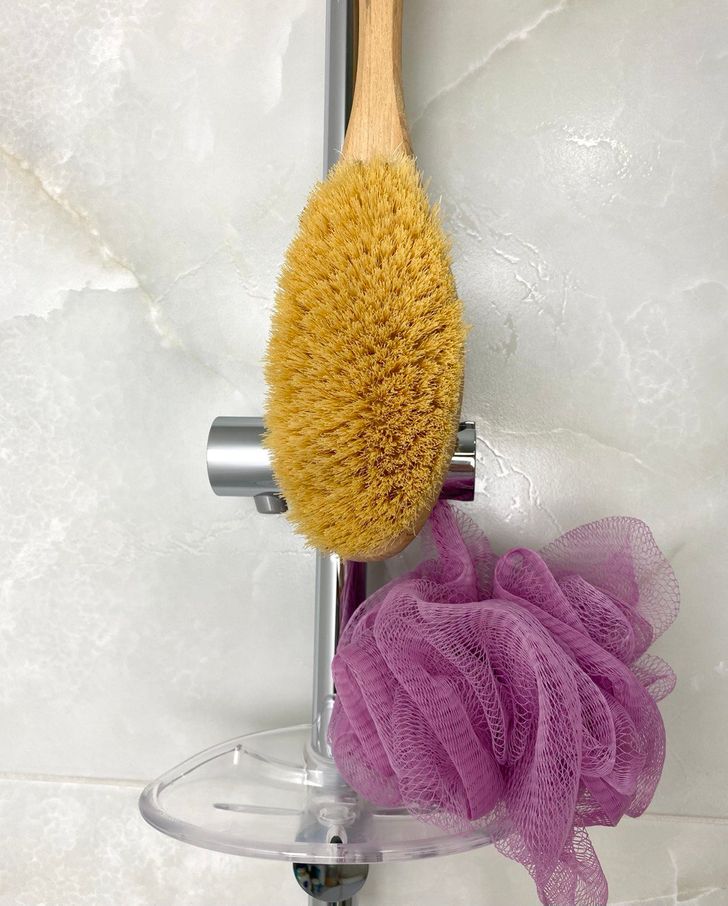
The shelves of a modern bathroom are often full of different products. But if you use them too often, you can damage your skin.
What you can use in the shower, and how often:
- Loofah. It’s not recommended to rub your body with this every day. You can simply wash yourself with your hands and shower gel. But first, you need to wash your hands thoroughly.
- Shower gel. You can wash yourself with soap, gel, shower oil, and so on. It all depends on the personal preferences and needs of your skin. But if your skin doesn’t produce a lot of sweat and oil, soaping your entire body every day is not necessary. It’s enough to just wash your palms, feet, armpits, and intimate areas with the gel. Your entire body should be washed as it becomes dirty.
- Exfoliant. A body scrub removes dry and dead skin cells, helping it breathe better. It makes the skin smoother and healthier. But you shouldn’t use it every day. It’s recommended to exfoliate the body 1 to 3 times a week, depending on your type of skin. An exfoliant should not be applied to wounds or irritated skin. Some people don’t exfoliate their skin at all. So, you need to proceed in accordance with the needs of the skin.
What you can wash your body with
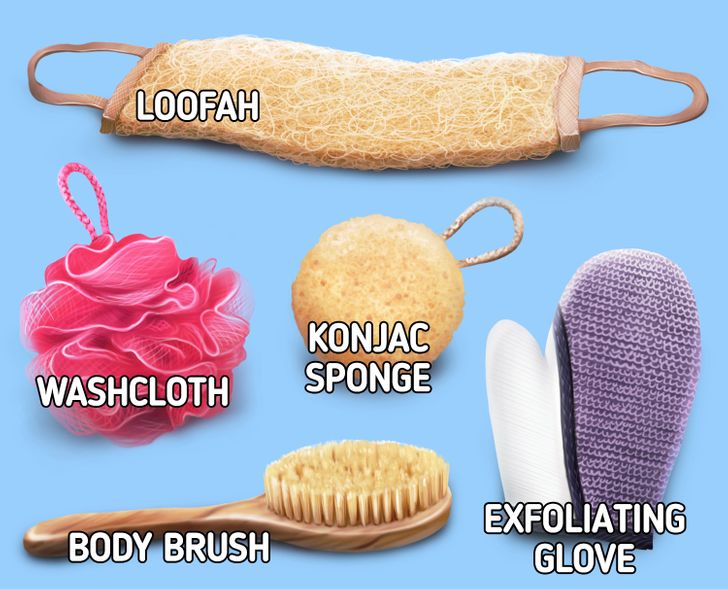
There are many handy tools you can use to wash your body. Let’s analyze the most popular ones.
- Bath pouf. Bath poufs range from very soft to very rough. The rougher it is, the better it will exfoliate your skin. However, you should remember that bacteria live and multiply on a bath pouf. Therefore, it needs to be rinsed well, dried outside the bathroom, and replaced every 2 to 3 years.
- Loofah. A loofah is a natural bath pouf. It perfectly exfoliates dead skin cells and improves blood circulation. But a loofah may contain even more bacteria. It also needs to be rinsed well and stored in a dry and cool place. It’s recommended to replace a loofah every 3-4 weeks.
- Body brush. It removes dead cells from the skin and makes it softer and smoother. Natural and synthetic bristles are used in brushes. You shouldn’t wash yourself with a brush more often than 3 times a week.
- Exfoliating glove. This is a bath pouf that you can put on your hand to massage your body. It cleanses and exfoliates the skin and helps fight scars, ingrown hairs, and stretch marks.
- Konjac sponge. This is a sponge made from a Japanese plant. The sponge produces a lot of foam, cleansing the skin. Konjac stimulates blood circulation and skin regeneration.
How to choose a shower gel or soap
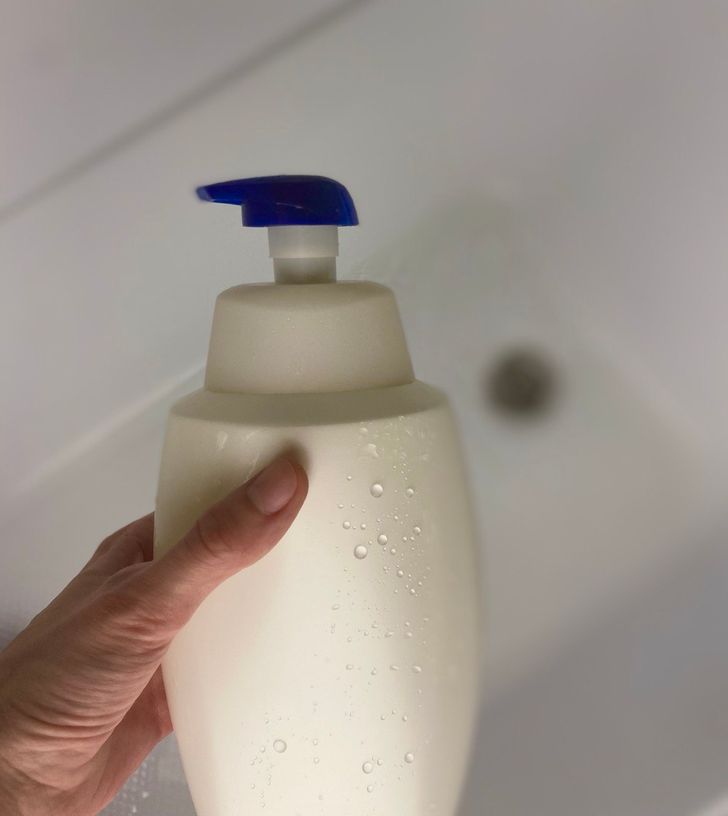
When choosing a body wash, you should keep your skin type in mind.
- Normal skin. For normal, healthy skin, you can use regular shower gel. Moisturizing ingredients are often added to it so that the skin doesn’t dry out. Regular shower gels come in a variety of scents and vibrant colors.
- Dry skin. For dry skin, a moisturizing body wash is recommended. They are creamier or more oily than regular gel. These products cleanse the body, but not as aggressively. In addition, they provide the skin with additional hydration.
- Sensitive skin. It’s better to use special products for cleansing sensitive skin. They should be free of fragrances and alcohol, which can cause irritation.
Intimate hygiene
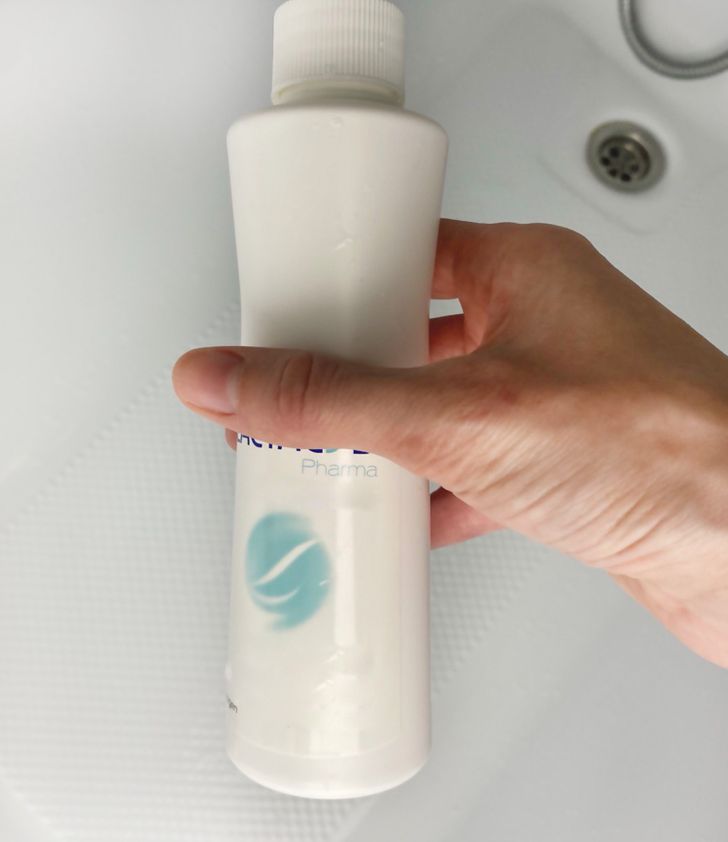
When caring for the intimate areas, experts recommend following these rules:
- The intimate hygiene routine should happen daily.
- You need to use special products for intimate hygiene. Due to their balanced pH level, they are not as aggressive on delicate skin.
- The intimate areas should not be washed with a sponge, brush, or bath pouf.
- After showering, dry the intimate areas with a soft and clean towel. This towel shouldn’t be shared with anyone and should be changed every 3 days.
How to wash yourself correctly
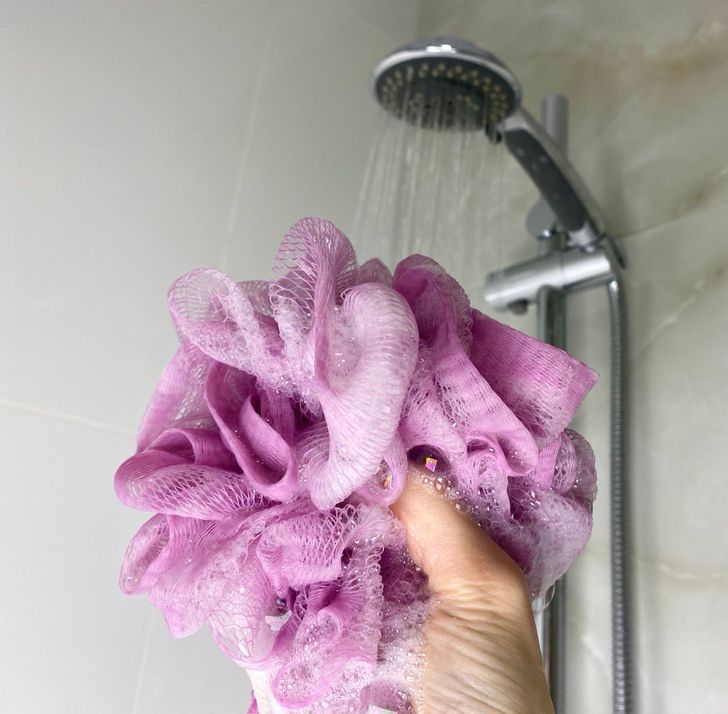
It’s recommended to take a shower quickly. Long-term exposure of the skin to water and soap is harmful to it.
- There is no specific sequence of actions for washing the body. But since the soap flows down, it makes sense to start washing the body from the top.
- It’s recommended to rinse off the shampoo and conditioner from the hair first, and only then to lather the body with the gel. This is especially true for those who have problem skin on their back and neck.
- Shaving your legs should be the last step in your showering routine.
Which areas require special attention
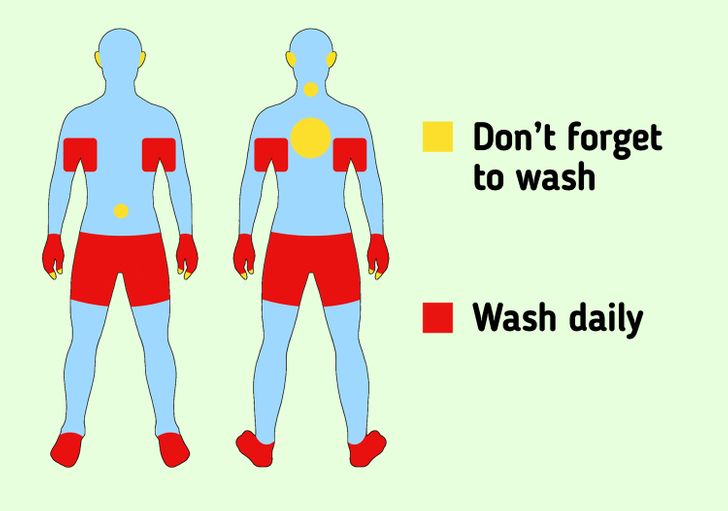
When showering, we often forget about hard-to-reach places and leave them without due attention. But they also need to be cleaned.
Areas you should pay attention to:
- The area between the shoulder blades. This area is hard to wash properly because your hands can’t reach it. In order to wash the skin between the shoulder blades, you need a brush with a long handle or a long bath pouf.
- The back of the neck. This area sweats and gets hot, especially if you have long hair. Therefore, the neck should be washed thoroughly.
- Auricles and the area behind the ears. The skin behind the ears produces a lot of sebum and therefore needs to be thoroughly cleansed. These areas can be washed with a soft bath pouf or by hand.
- Inside the navel. The navel is home to many bacteria that can cause a bad odor.
- Intimate areas.
- Feet. A large number of bacteria live on the feet, including harmful ones. Plus, dirt can build up between your toes. Therefore, you need to wash your feet thoroughly.
- Under the fingernails. Various bacteria and dirt can accumulate under the fingernails. It’s not always possible to cleanse this area with just your hands and soap. You can use mild soap and a cotton disc or Q-tip to clean dirt from under your fingernails.
What water you should wash with
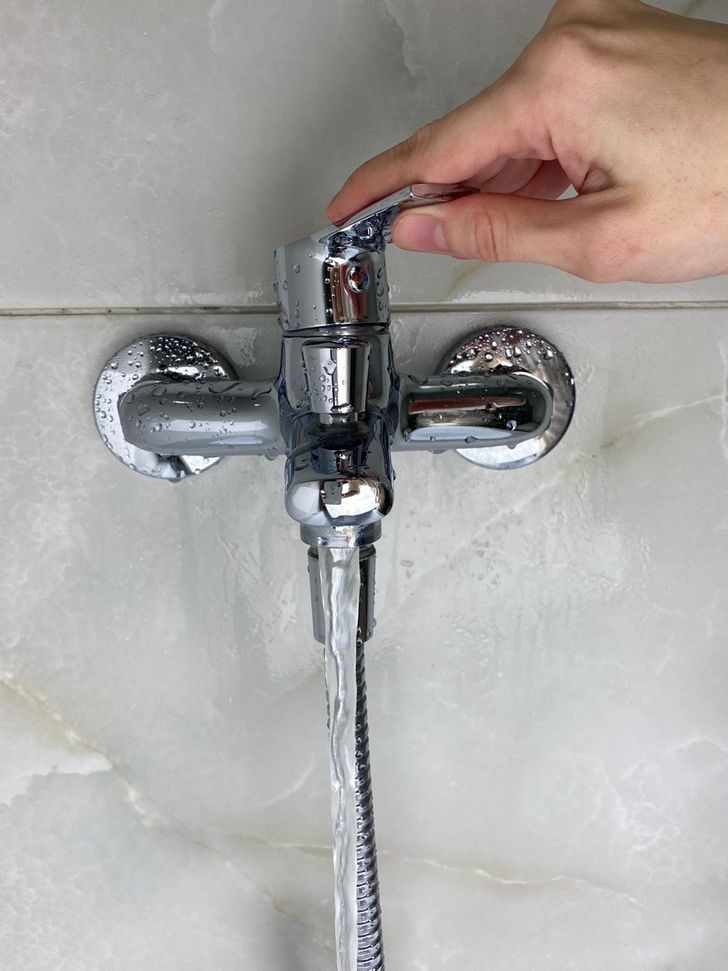
Many people choose the water temperature according to their own preferences. But experts recommend washing in warm water. The optimal temperature for removing bacteria from the skin is 112°F.
Water that is too hot can wash off natural oils from the skin and therefore dry it out. While cool and cold water has no negative effect on the skin.
Hot or cold water
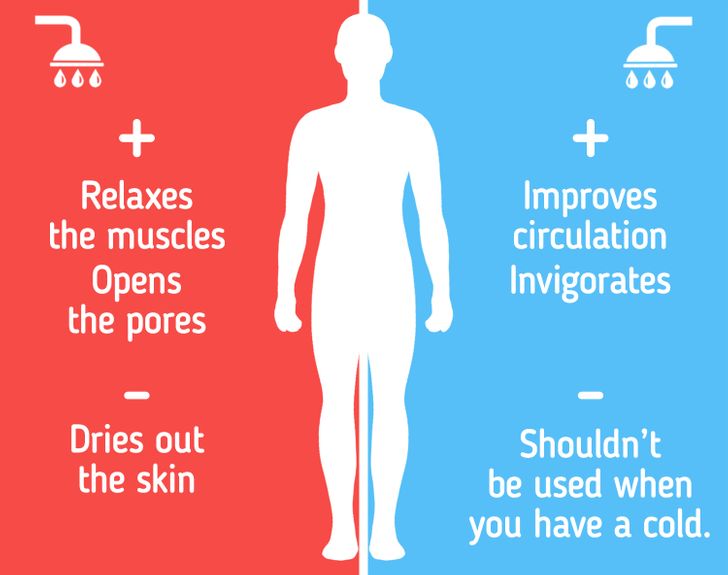
Both hot and cold water has its benefits. Let’s talk about them.
How cold water affects the body:
Benefits:
- May reduce muscle soreness after exercise.
- Improves blood circulation.
- Has a beneficial effect on skin and hair.
- Relieves itching.
- Invigorates.
Drawbacks:
- Don’t take a cold shower when you have a cold or flu, as cold water can aggravate your condition.
How hot water affects the body:
Benefits:
- Relieves respiratory symptoms.
- Opens the pores and helps unclog them.
- Improves sleep.
- Relaxes the muscles.
- Has a beneficial effect on the joints.
Drawbacks:
- Dries out the skin.
- May cause itching and irritation of the skin.
- Can aggravate some skin diseases.
- Washes away natural oils from hair.
- May increase blood pressure.
Shower or bath
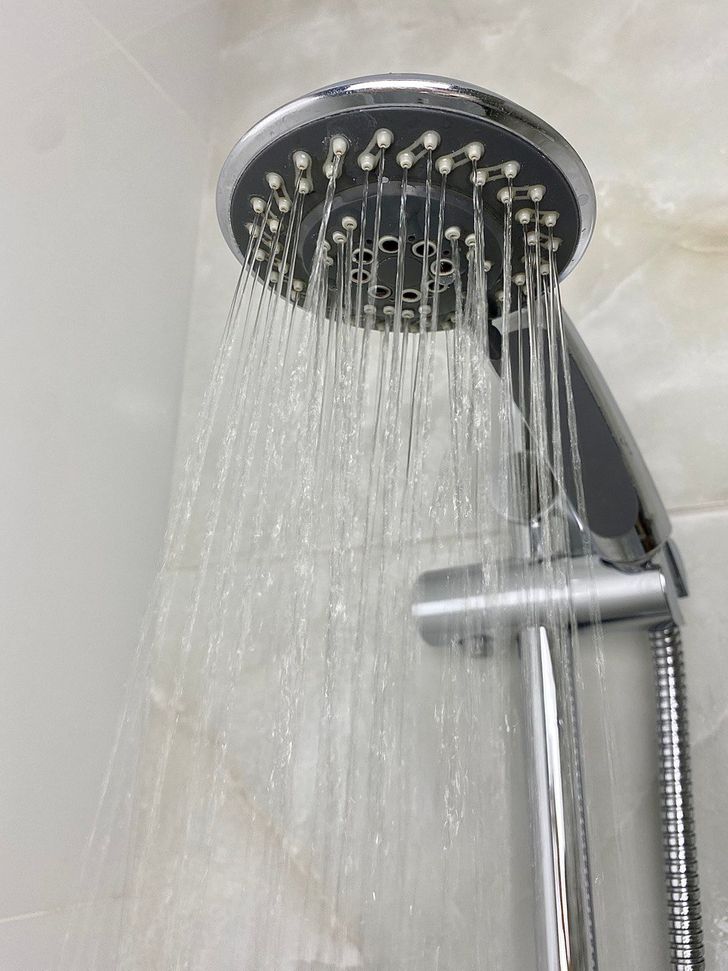
Some people like to take a quick shower, while others don’t mind soaking up in warm water inside the bathtub for a long time. Surely many of us have wondered at least once about what is more useful: taking a shower or a bath.
It’s believed that a shower is safer for the skin. You usually spend less time in the shower than in the bath, therefore, the skin doesn’t dry out that much. Besides, a stream of water in the shower washes away microbes and carries them into the sewer. At the same time, when taking a bath, microbes remain in the water.
However, a bath can be beneficial too. For example, it can provide relaxation after a hard day. A warm bath in the evening will make your sleep more sound.
Skin care after the shower
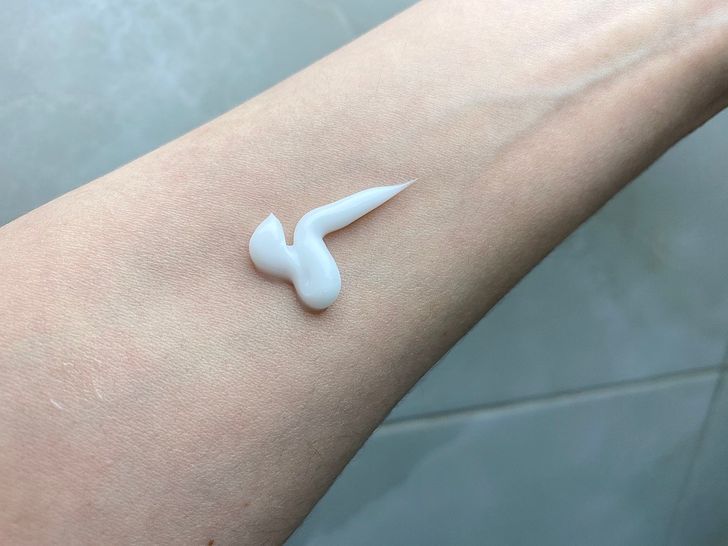
After showering, pat your body dry with a clean, dry towel. You shouldn’t rub yourself with the towel, because this can cause irritation and itching. But all the body folds, the groin, underarms, and the skin between the fingers must be dried well.
Then apply a moisturizer if your skin needs it. It’s better to do this within the first few minutes after a shower.
What you can use to moisturize your skin: